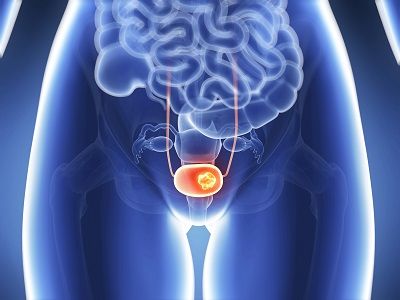UGN-102 Shows Durable 1-Year Responses in Low-Grade, Intermediate-Risk NMIBC
UGN-102 also demonstrated a 79.6% complete response rate at 3 months in the phase 3 ENVISION trial.
UGN-102 also demonstrated a 79.6% complete response rate at 3 months in the phase 3 ENVISION trial.

UGN-102 (mitomycin) elicited an 82.3% (95% CI, 75.9%-87.1%) duration of response (DOR) rate at 1 year in patients with low-grade intermediate-risk non-muscle invasive bladder cancer (NMIBC) who achieved complete response (CR) at 3 months following the first instillation of treatment, according to a news release on the phase 3 ENVISION trial (NCT05243550) from the drug’s developer, UroGen Pharma.1
Additionally, the CR rate at 3 months was 79.6% (95% CI, 73.9%-84.5%), meeting the study’s primary endpoint. At 15 (n = 43) and 18 months (n = 9), the DOR rates were both 80.9% (95% CI, 73.9%-86.2%).
UroGen initiated a submission for a rolling New Drug Application in January 2024 to the FDA for the UGN-102 in this patient population. DOR data would be expected to support the UGN-102 NDA, with an FDA decision possible to occur in the first quarter of 2025.
"These DOR findings continue to support the development of UGN-102 as a non-surgical alternative to the current standard of care of repeated surgeries for [low-grade, intermediate-risk] NMIBC, which can impact patients’ physical health and quality of life," Sandip Prasad, MD, M.Phil., director of Genitourinary Surgical Oncology, Morristown Medical Center/Atlantic Health System, in New Jersey, stated in the news release. "These results from the ENVISION study make me very optimistic about the opportunity for UGN-102, if approved, to provide another option for patients living with this highly recurrent disease."
In ENVISION, patients received 6 once-weekly intravesical instillations of UGN-102 for the duration of the trial.2 UGN-102 is comprised of mitomycin and sterile hydrogel used to reconstitute mitomycin before instillation. The UGN-102 admixture contains 75 mg mitomycin in 56 mL admixture (1.33 mg of mitomycin per 1 mL).
Adults 18 years and older were eligible for the study.2 To be eligible for enrollment, patients had to have low-grade NMIBC that was histologically confirmed by cold cup biopsy at or within 8 weeks before screening; having a history of low-grade NMIBC that required transurethral resection of bladder tumors; have intermediate-risk disease, defined as the presence of multiple tumors, a solitary tumor greater 3 cm, or early or frequent recurrence, defined as at least 1 occurrence of low-grade NMIBC within 1 year of the current diagnosis at the initial screening visit; among other criteria.
Exclusion criteria include having received Bacillus Calmette-Guérin treatment for urothelial carcinoma within the previous year, a history of high-grade bladder cancer (papillary or carcinoma in situ) in the past 2 years, known allergy or sensitivity to mitomycin, clinically significant urethral stricture that would preclude passage of a urethral catheter, or history of neurogenic bladder, active urinary retention, and conditions that would prevent normal voiding.
Safety results were found to be similar compared with other UGN-102 studies. Common treatment-emergent adverse events in ENVISION included dysuria, hematuria, urinary tract infection, pollakiuria, fatigue, and urinary retention, ranging from mild to moderate in severity.
"UGN-102 has demonstrated a strong clinical profile across multiple trials, with these latest results of 79.6% 3-month complete response rate and 82.3% DOR at 12 months, reinforcing its potential to be the first FDA-approved non-surgical option for treatment of [low-grade, intermediate-risk] NMIBC," Liz Barrett, president and chief executive officer of UroGen, stated in the news release. "We estimate 82,000 patients suffer from this highly recurrent disease in the US each year and may benefit from an innovative approach to treating their disease."
References
- UroGen announces unprecedented 82.3% duration of response at 12 months in the ENVISION trial investigating UGN-102 as potentially the first FDA-approved non-surgical treatment for LG-IR-NMIBC. News release. UroGen Pharma Ltd. Published June 13, 2024. Accessed June 17, 2024 https://tinyurl.com/4s29779d
- A phase 3 single-arm study of UGN-102 for treatment of low grade intermediate risk non-muscle-invasive bladder cancer (ENVISION). ClinicalTrials.gov. Updated September 29, 2023. Accessed June 17, 2024. https:// clinicaltrials.gov/ct2/show/NCT05243550